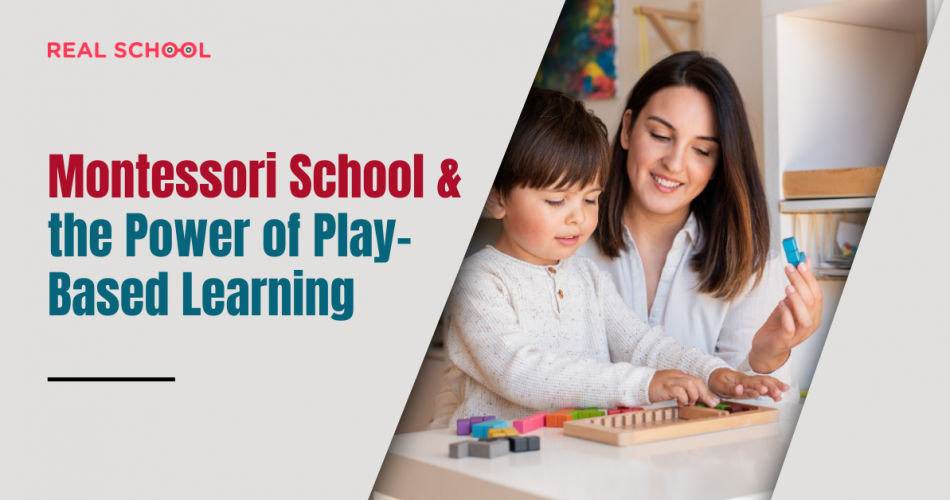Play is a natural and essential part of a child’s development, and Montessori schools harness the power of play-based learning to create a joyful and enriching educational experience. Dr. Maria Montessori recognized the significance of play in fostering creativity, problem-solving, and social skills in children. In this article, we will explore how Montessori schools embrace play-based learning and its profound impact on children’s growth and development.
The Importance of Play in Montessori Education
Play is not seen as a break from learning in Montessori education; rather, it is considered an integral part of the learning process. Play provides children with opportunities to explore, experiment, and make sense of the world around them. It enhances their cognitive, social, emotional, and physical development in a natural and enjoyable way.
Child-Directed Exploration
In Montessori schools, play-based learning is child-directed. Children are encouraged to choose activities that interest them and engage in them at their own pace. This autonomy fosters a sense of independence and self-motivation in children, empowering them to take charge of their learning journey.
Hands-On Learning
Play-based learning in Montessori schools involves hands-on experiences. Children interact with materials and engage in activities that encourage exploration and discovery. Manipulating objects and engaging in sensory experiences deepen their understanding of concepts and promote a love for learning.
Fostering Creativity and Imagination
Play allows children to tap into their creativity and imagination. In Montessori classrooms, children have access to open-ended materials that can be used in various ways. This freedom sparks imaginative play, enabling children to express themselves and explore new ideas.
Problem-Solving and Critical Thinking
Play-based learning encourages problem-solving and critical thinking skills. Children encounter challenges during play, and they are motivated to find solutions independently or collaboratively with peers. This fosters resilience, adaptability, and resourcefulness.
Social Skills and Collaboration
Play-based learning is an ideal setting for developing social skills and collaboration. Children engage in group play, take turns, and negotiate with one another, fostering empathy and cooperation. Through play, children learn to understand others’ perspectives and build meaningful connections.
Emotional Regulation
Play provides children with a safe space to explore and express their emotions. Engaging in play helps children develop emotional regulation skills, allowing them to manage and understand their feelings better.
Integration of Concepts
Play-based learning in Montessori schools integrates various concepts seamlessly. Children can explore multiple subject areas simultaneously, making connections between different learning experiences.
Joyful Learning
Above all, play-based learning in Montessori schools makes learning joyful. Children look forward to coming to school, as they associate the learning process with excitement, curiosity, and exploration.
Balance with Structured Learning
While play-based learning is highly valued in Montessori education, it is balanced with structured learning activities. Montessori schools provide a comprehensive curriculum that includes academic lessons, allowing children to develop foundational skills alongside play-based exploration.
Conclusion
Play-based learning is a powerful tool in Montessori education, promoting creativity, problem-solving, social skills, and emotional development in children. By embracing child-directed exploration, hands-on learning, and fostering collaboration, Montessori schools create a nurturing and enriching environment where children can thrive. Play-based learning not only prepares children for academic success but also nurtures their love for learning and sets the stage for a lifelong journey of curiosity and discovery.
FAQs (Frequently Asked Questions)
How do Montessori teachers incorporate play-based learning into the curriculum?
What types of materials are used in play-based learning in Montessori schools?
How does play-based learning support the development of fine and gross motor skills?
Are there specific play-based learning activities that encourage problem-solving in Montessori classrooms?
How does play-based learning benefit children’s social and emotional development?







